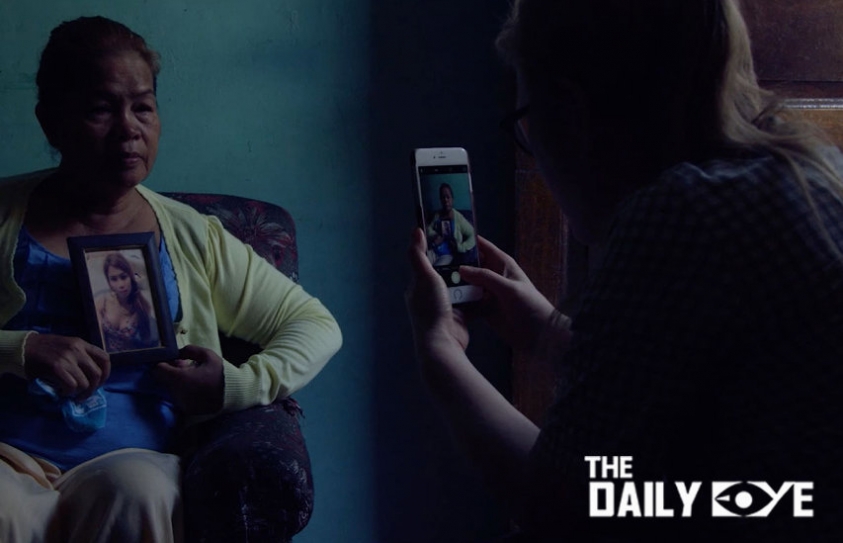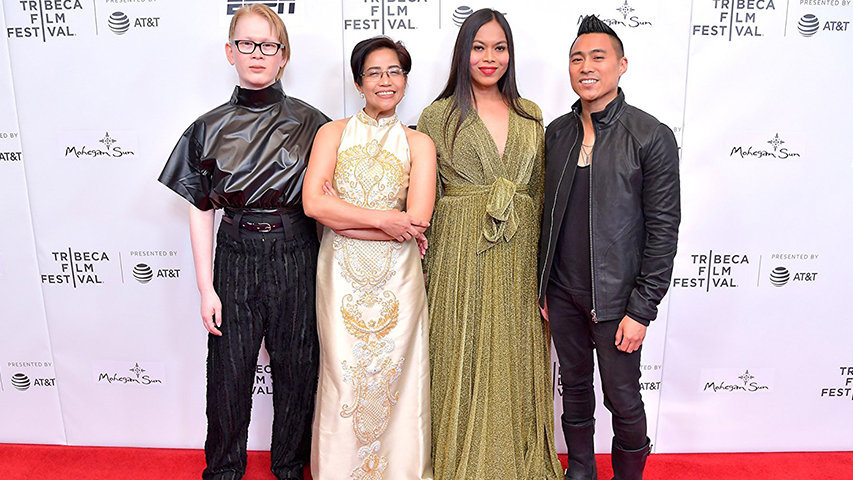
Call Her Ganda: A Mother's Chance to fight for her Daughter
by Yash Saboo May 10 2018, 5:15 pm Estimated Reading Time: 2 mins, 45 secsCall Her Ganda, a documentary by Filipino-American director PJ Raval made its world premiere at the Tribeca Film Festival. The film recounts the tale of how Jennifer Laude, a transgender Filipina, was killed by a U.S. marine who was subsequently arrested and put on trial for the crime. Dealing with provocative themes of prejudice, homophobia, colonialism and the arrogance of U.S. military forces abroad.
The story begins in 2014, when 26-year-old Jennifer Laude, whose mother Julita fondly called her ‘Ganda’ (‘beauty’ in Tagalog), was found dead in a motel room bathroom after a night out with girlfriends, her head submerged in a toilet. She had gone to the room with Joseph Scott Pemberton, a 19-year-old marine on leave who had met the alleged sex worker in a disco. Upon discovering that Jennifer was in fact transgender, Pemberton apparently snapped and brutally killed her.

Source : IMDb
Figuring prominently in the resulting political, media and legal firestorm are three women: Jennifer's mother, who found herself in the unlikely position of spearheading political protests; Meredith Talusan, a transgender investigative journalist who drew international attention to the case with her articles published by Vice, The Guardian and Buzzfeed, among other outlets; and Virgie Suarez, an activist attorney determined to bring Jennifer's killer to justice despite formidable odds.
The tumult surrounding the case is vividly conveyed when the film opens with Julita tearfully displaying her slain daughter's bedroom, which has been left as it was when she died. We hear a newscaster referring to the victim as "Jeffrey, who dressed like a woman." Pemberton is quoted by a fellow marine as saying, "I think I killed a he/she", when he returned to the base. An activist describes the situation as a "watershed moment in the history of the Filipino trans movement," explaining that most trans people are relegated to working only in the beauty or sex industries. Pemberton's mother tells a journalist that her son has no bias toward transgender people because his sister is a lesbian.
Much of the ensuing controversy revolves around the Visiting Forces Agreement, which dictates that the U.S. government retains jurisdiction over military personnel accused of committing crimes in the Philippines except under special circumstances. Numerous anti-U.S. protests break out during the ensuing trial, the outcome of which won't be revealed here. There is also plenty of sympathy for the accused killer, as illustrated by the numerous hateful tweets shown in the film.
The director supplies much needed context with a short history of the Philippines and its colonization by America, as well as a segment devoted to the election of Rodrigo Duterte as the country's president in 2016 and his subsequent criticisms of the United States' role in the region.
The three female figures, who are in search of justice always remains the center of the film. This gives Call Her Ganda its emotional strength. Handling its complex issues and complicated plot developments with forceful clarity, the film proves simultaneously heartbreaking and inspirational. While the documentary is meant to be a protest piece against the violence and discrimination faced by transwomen globally—it’s also a history lesson about U.S. imperialism and its political and social ramifications, especially as it relates to Filipinos all around the globe.





-173X130.jpg)


-173X130.jpg)

-173X130.jpg)
